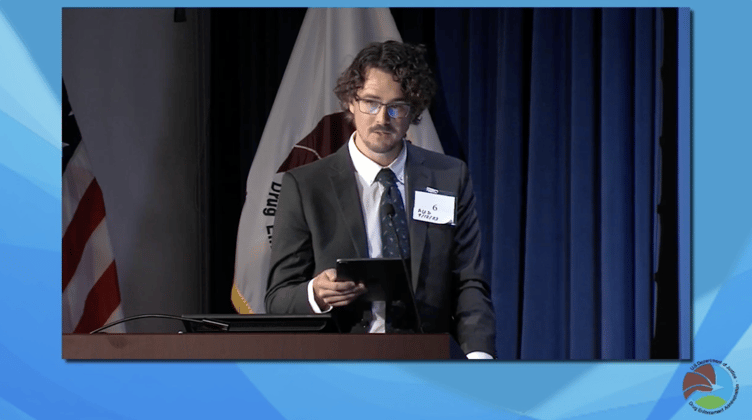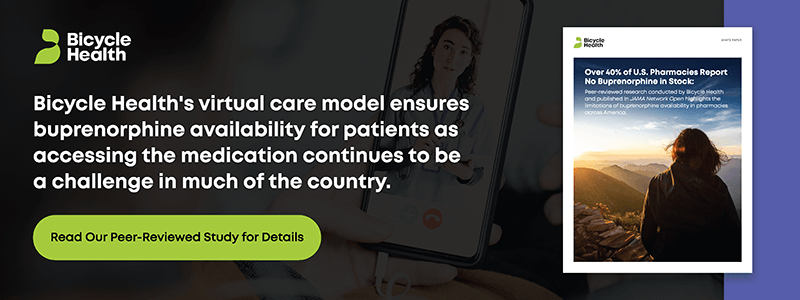In 2021, opioid-related overdoses became the leading cause of death for Americans age 50 and under. Opioid-related overdose deaths have increased over 500% in the past 20 years, and they have doubled in the last five.
Here are five bright spots in the healthcare effort to address America's opioid crisis:
1. Progress on Regulatory Reforms
On December 29, 2022, President Biden signed the 2023 Consolidated Appropriations Act into law, which significantly expanded access to medication for opioid use disorder (MOUD) treatment programs. Shortly thereafter, the DEA put forward new proposed guidelines to extend access to telehealth-based MOUD treatment programs that were enacted on a temporary basis during the pandemic.
While there was opposition to the DEA's first draft of new telehealth prescribing rules, to their credit, the DEA extended their deadlines to review and revise their proposed rules, and also hosted listening sessions to ensure that the rules they put in place increase access to treatment for qualified patients.
In September, Bicycle Health's CMO, Dr. Brian Clear, was one of a small group of thought-leaders invited to Washington, D.C., to present to DEA leadership. Dr. Clear was one of 60 presenters selected by the DEA from more than 1,000 inquiries. Each presenter was given 10 minutes to share their perspective and insights, followed by questions from DEA Administrators Anne Milgram and Tom Prevoznik. The goal of the two-day sessions was to gather feedback on the issue of telehealth prescribing. You can see that presentation here on our blog.
2. The Criminal Justice System's Adoption of MOUD
The criminal justice system was also a major beneficiary of the Biden administration's expansion of access to medication for opioid use disorder (MOUD) treatment programs. Nearly two-thirds of prison inmates have a substance use disorder, and their risk of opioid overdose after being released is 10 times higher compared to the general public.
Two separate studies—one from the National Bureau of Economic Research and another from the National Institute of Justice—found that MOUD treatment reduced recidivism rates by 30% among people with OUD who were released from prison, and that MOUD treatment reduced overdose deaths by 59% among people with OUD who were involved in the criminal justice system.
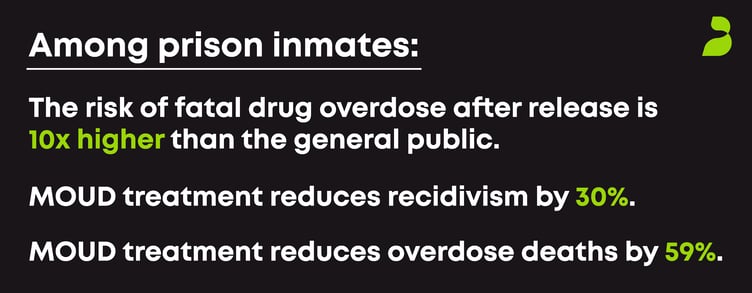
We're seeing companies that deliver healthcare inside the US prison system begin to embrace new treatment programs as well. In May, Bicycle Health signed a deal with Wellpath, a multi-state provider network that delivers medical and mental healthcare in correctional facilities, as well as inpatient and residential treatment centers.
Through our partnership with Wellpath, we're providing virtual MOUD to people living in the Federal Bureau of Prisons' Residential Reentry Centers across 42 states.
3. Expanding Retail Access to Telehealth-based MOUD Treatment Programs
Earlier this year, Albertsons, one of the nation's largest retail grocery and pharmacy chains, made the financial investment to train their pharmacy staff to administer buprenorphine injections on site. This is an incredibly courageous decision to invest in a treatment program that serves a stigmatized patient population, which is often shunned at pharmacy counters nationwide.
I'm proud to say that Bicycle Health updated our care model to be able to prescribe buprenorphine injections as an alternative to oral buprenorphine so that we could refer patients to Albertsons when appropriate.

In the past quarter, we've also teamed up with CVS Minute Clinic and signed a national agreement with Aetna to rapidly scale access to virtual MOUD treatment. Through this collaboration, our clinicians can refer patients to CVS Minute Clinics for primary care, and providers working in CVS Minute Clinics can refer patients with OUD to Bicycle Health for virtual MOUD care.
4. Medical Evidence on the Efficacy of Telehealth-based MOUD Continues to Pile Up
There is still some opposition to allowing telehealth providers to prescribe medications used to treat opioid use disorder (OUD) through telemedicine, but that opposition is waning under the weight of evidence that virtual MOUD is a superior form of care for the majority of people with OUD.
In the past year, research has been published in peer-reviewed journals showing that:
• MOUD reduces overdoses (Journal of Substance Abuse Treatment)
• Lowers healthcare costs (Journal of Substance Abuse)
• MOUD via telehealth is associated with reductions in fatal drug overdoses (JAMA Psychiatry)
• Telehealth-based MOUD improved retention and reduced medically treated overdose (JAMA Psychiatry)
• Utilization of MOUD improved for veterans after treatment shifted to telehealth (American Journal of Psychiatry)
• MOUD via telehealth improved retention and reduced no-show rates (BMJ Innovations)
• MOUD via telehealth is associated with a decline in opioid-related deaths involving buprenorphine (JAMA Network Open)
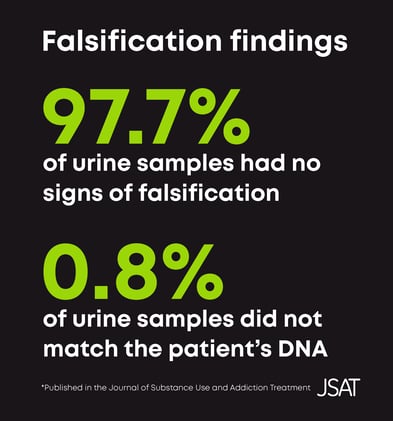 These studies were all published in early 2023 or mid-to-late 2022. One of them, "MOUD via telehealth improved retention and reduced no-show rates" (BMJ Innovations), studied our model here at Bicycle Health. Overall, our model has been studied and published in the peer-reviewed literature four times in the past two years.
These studies were all published in early 2023 or mid-to-late 2022. One of them, "MOUD via telehealth improved retention and reduced no-show rates" (BMJ Innovations), studied our model here at Bicycle Health. Overall, our model has been studied and published in the peer-reviewed literature four times in the past two years.
Last month, research on the quality outcomes of our virtual drug screening program was published in the Journal of Substance Use and Addiction Treatment. This research showed that our patients' falsification rate on a drug screen was under 3%; far less than in-person clinics that average 5-18% in the literature.
This research shows that virtual drug screening can be an effective way to monitor patient progress and prevent relapse.
5. Payors Signing National Contracts with Telehealth-Based Medical Groups
Last fall, Bicycle Health announced that we were being added to Evernorth's behavioral health provider network, making us available to all Evernorth clients, as well as Cigna health plan customers receiving health coverage through their employers or marketplace exchange plans.
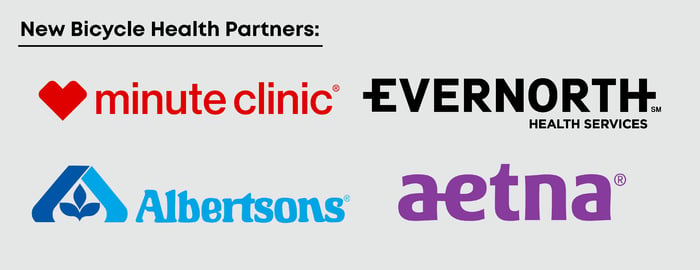
This fall, Bicycle Health entered into a national agreement with Aetna and became a part of Aetna's behavioral health provider network. These types of national agreements are a sign that the nation's largest insurance companies see the need for increasing access to MOUD care, and are embracing scalable telehealth programs as an important part of the solution.
I believe that 2023 was a tipping point for telehealth-based OUD treatment. With the continued support of our partners and patients, I'm confident that we can make a real difference in the fight against the opioid crisis. Virtual OUD treatment will play a key role in this momentum, and it will help us to overcome the opioid crisis and build a healthier future for all Americans.
